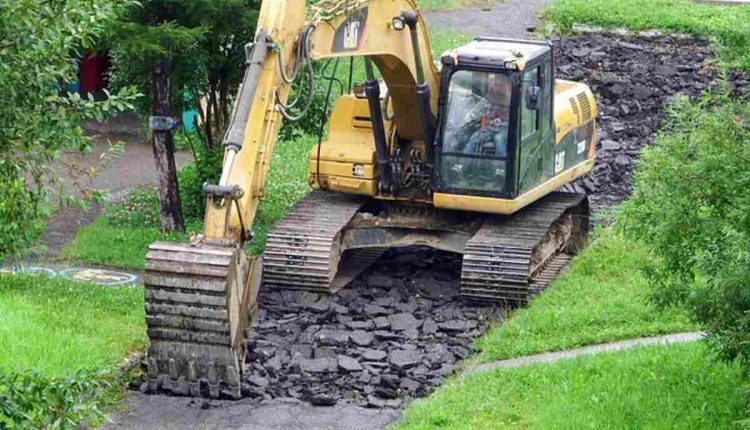An excavation contractor provides an essential foundation for new construction projects, from digging and earthmoving duties to working with other contractors to install underground utility lines and drainage systems. Discover the best info about excavating Portland.
When choosing an excavation contractor, look for these three qualities: professionalism, Experience, and Equipment. They should have their own shop for repair purposes and follow a hot work program to avoid the theft of vehicles and equipment.
Professionalism
Professional excavation contractors must be licensed, bonded, and insured before taking on construction projects. They must also monitor permits and deadlines related to their projects and comply with OSHA standards on job site safety. Many also take small business courses or learn excavation techniques to remain competitive in the market.
An experienced excavation company will have all the right equipment for any size project, such as backhoes and excavators for digging deep trenches or leveling out an entire lot for construction purposes. They may even create temporary access roads so equipment and supplies reach the worksite more quickly.
Professional excavation companies possess the experience and know-how required to safely dispose of trash, debris, or soil after their work is finished. Furthermore, they can assist with drainage needs on residential or commercial properties, which is essential to avoiding water damage.
An excavation company employs professionals with expertise in reconnecting sewer, water, and electricity services following demolition. They can also assist in disconnecting gas lines to avoid any safety risks that might occur during this process. Once leveled-out yards have been finished, topsoil should be added for optimal grass growth and plant health.
Experience
Excavation contractors go beyond traditional construction equipment by possessing specialized tools for various projects. This allows them to complete work quickly and efficiently, saving both time and money over time. Furthermore, professional excavation contractors understand how to work around existing structures such as water lines and electricity poles, thus saving costs associated with replacing or repairing damaged materials.
When searching for an excavation contractor, make sure they have an impressive track record. Ask about their experience working on projects similar to your own, as well as references from past clients, and inquire about safety commitment and adherence to industry standards. Ideally, find one who uses modern equipment with transparent pricing structures.
Excavation contractors specialize in shaping land for major construction projects such as new buildings, roads and highways, and utility-scale solar farms. This involves digging, trenching, and grading using various machinery. They also prepare sites by clearing away old materials or prepping soil for landscaping purposes, installing sewers wells or foundational supports as needed for buildings if necessary, and working closely with architects, engineers, land surveyors, and general contractors subcontracted through subcontract agreements to complete onsite prep and construction on schedule.
Equipment
An effective construction project demands various pieces of equipment in order to proceed efficiently and smoothly. In the excavation sector, earth-moving machinery like Excavators, Backhoe Loaders, and Dump Trucks are used. These machines come equipped with attachments such as buckets and grapples for increased material handling capabilities that help increase project productivity.
Excavation contractors use heavy-duty earthmoving vehicles and specialized equipment like Plate Compactors and Concrete Mixers for concrete preparation. They also build temporary roadbeds that allow construction equipment and materials to reach their destinations on job sites.
Land-shaping services also specialize in building roads, excavating ponds and sewers, creating terraced drainage on agricultural lands, excavating trenches for water lines and gas pipes, and using cranes to lift heavy objects or load containers—tasks that they may take on without incurring additional charges.
An excavation contractor can also help clear large areas of debris by clearing away logs, rocks, and roots from yards and fields. They can add topsoil to a leveled-out yard space to promote grass growth and encourage other forms of vegetation growth. Finally, excavation contractors provide demolition services as they take down preexisting structures like sheds or buildings to make way for building foundations or pools in some cases.
Safety
As excavation contractors specialize in accidents that often result in injuries, they understand that prioritizing safety measures is paramount. This includes adhering to construction standards, regularly maintaining equipment, and offering new employee training sessions. Furthermore, such practices demonstrate their dedication to protecting human lives beyond legal requirements or financial considerations.
Pre-Planning: Conducting an in-depth risk analysis before work commences is essential to minimizing hazards by evaluating soil conditions, utility lines, and emergency access plans. Regular Inspections by Competent Persons ensure risks are identified quickly and addressed efficiently. Safe Entry: Ensuring all workers enter excavation sites through controlled points reduces danger by limiting unwarranted access to potential hazards; engineering controls like trench boxes or safe entry equipment should always be used as protection mechanisms against this happening.
Gas Testing in Live Plant Areas: Conducting gas tests prior to entering confined spaces ensures there are no toxic or flammable gases present and allows precautionary measures to be implemented as necessary. Adequate Barricades and Signage: Clear, visible barriers and warning signs should be installed at excavation sites to deter unauthorized entrance and warn bystanders about potential dangers. Temporary Support for Existing Foundations: When digging near existing building foundations, temporary supports should be put in place in order to reduce risks of collapse.
Careful attention must also be paid to equipment maintenance, theft protection, and developing an incident investigation program as other essential measures of safety for contractors, their employees, and their clients. Employing these steps shows a strong dedication to both their well-being and that of their clientele.


